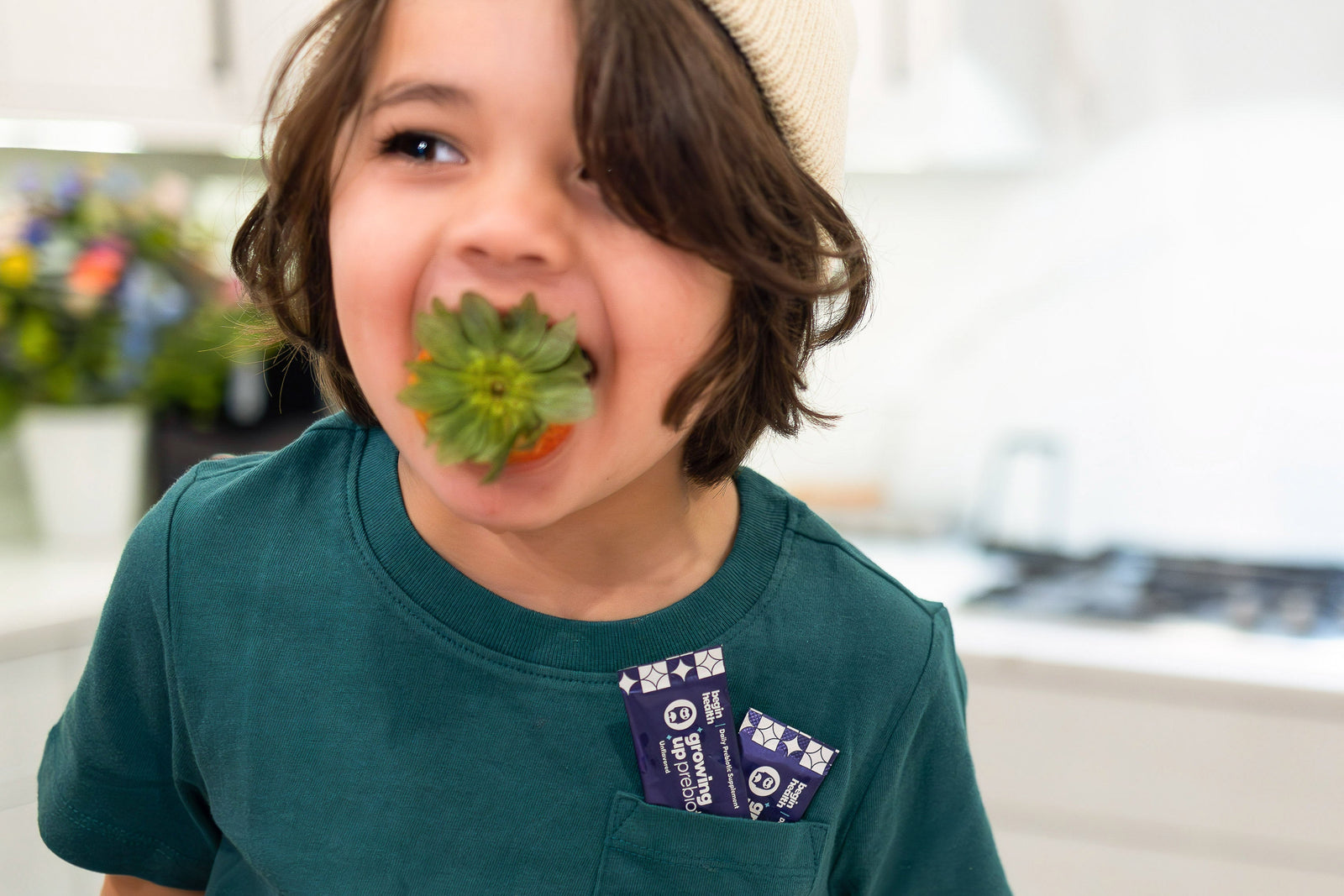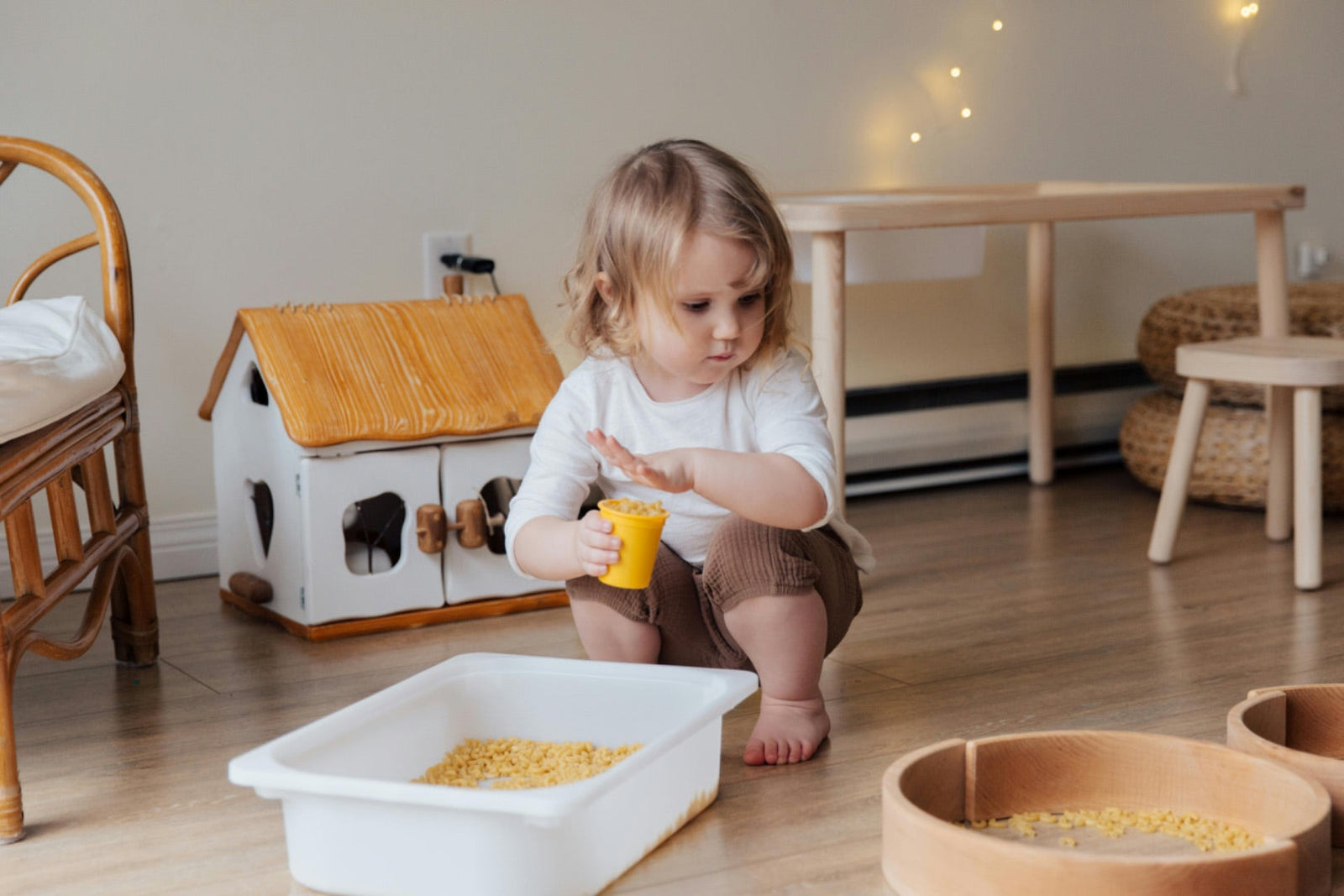Your Cart is Empty
Continue shopping5 Healthy Habits For Kids Constipation Support
Medically Reviewed by May Zhu, RDN | Published November 21, 2023
share this article

Constipation in kids can be uncomfortable, distressing, and disruptive to their daily lives. It's important to address this issue promptly to ensure that their habits contribute to a healthier life as they grow. While medications are sometimes necessary, sometimes additional relief can result through lifestyle and diet changes, which can help with symptoms from constipation without the need for pharmaceutical interventions. While it’s always essential to consult a healthcare professional for persistent issues, optimizing our kiddo’s daily habits can help with constipation relief in the short-term. In this blog, we will review which habits can affect our kiddo’s digestion and break down what the current research tells us about constipation and kids’ gut health.
Symptoms of Constipation in Kids
According to the Mayo Clinic, on average we can expect kids aged 1 year and up to have one to two bowel movements daily as a part of a healthy poop routine. Symptoms of constipation in toddlers and kids may include:
-
Infrequent Stools. A good indicator is passing less than two bowel movements a week.
-
Hard Stools. Your little one is passing stools that are hard, dry, or lumpy.
-
Difficulty or Pain during Bowel Movements. This means having stools that are difficult or painful to pass.
-
Changing positions to avoid or delay having a bowel movement. This may include:
-
standing on tiptoes and then rocking back on his or her heels
-
clenching his or her buttocks
-
doing unusual, dancelike movements
-
-
Soiling. Having stool in his or her underwear that looks like diarrhea.
Healthy Habits: 5 Key Ways to Support Kids' Constipation
Our kiddo’s daily habits create the foundation for their health. Here are five healthy habits that can help kid’s constipation:
1. Maintaining Daily Dietary Fiber Intake: Increasing dietary fiber is one of the most effective natural remedies for constipation in kids [1]. Encourage the consumption of fiber-rich foods like whole grains, fruits, and vegetables by offering at least one source at every meal. Fiber adds bulk to the stool and helps it move smoother through the digestive system.
Recommended Daily Fiber Intake by Age
|
Age (years) |
Fiber (in grams) |
|---|---|
|
1 to 3 years |
19 grams |
|
4 to 8 years |
25 grams |
|
9 to 13 years (female) |
26 grams |
|
9 to 13 years (male) |
31 grams |
Source: Cleveland Health Clinic
2. Daily Prebiotic Intake: Prebiotics are non-digestible fibers that support the growth of beneficial gut bacteria to support a healthier digestion. Check out our blog on the Top Sources of Prebiotic Fiber for Kids for examples of prebiotics to include in your little one’s diet.
3. Physical Activity: Exercise can help stimulate bowel movements and decrease the risk for constipation [4]. In addition, research specifically shows that incorporating pelvic floor muscle exercises can be an effective non-pharmacologic treatment for pediatric functional constipation [3].
4. Natural Food Laxatives: Certain foods have natural laxative properties. Incorporating fruits such as pears, prunes, peaches, and plums, also known as the “4 P’s” for Kid Constipation daily are more natural approaches for maintaining digestive health and supporting kid’s constipation.
5. Hydration: Proper hydration is crucial for softening the stool and preventing constipation. In addition to water, 100% fruit juice without added sugars can also contribute to your kiddo’s daily hydration needs. For an extra health boost, try adding a scoop of Growing Up Prebiotics - every serving adds 3 grams of daily fiber for softer and more comfortable poops without changing the taste or texture [2].
Daily reads to help your little ones lead happier and healthier lives.
Buy Now
Join the
Happy Gut Club
|
Kids Hydration Recommendations by Age |
|
|---|---|
|
Age |
Liquid Amount |
|
Infants (0 - 6 months) |
Breastmilk or formula as their only source of hydration. Small sips of water can be introduced with solid foods between 6 - 12 months. |
|
Toddlers (1 - 3 years) |
Half an ounce of water for every pound of body weight |
|
Kids (ages 4 and above) |
Half an ounce of water for every pound of body weight |
Source: Children’s Hospital of Orange County
Begin Health Expert Tip
Smoothies are another great way for kids to stay hydrated. Check out these Gut-Friendly Prebiotic Smoothie recipes for Kids as recommended by our Registered Dietitian.
Summary
Optimizing our kiddo’s daily habits can help with constipation relief and long-term health. A well-balanced diet, proper hydration, prebiotics, and physical activity are all key components of maintaining a healthy digestive system. Additionally, supplements like Growing Up Prebiotics can offer a convenient and kid-friendly way to support digestive health. Remember to consult a healthcare professional if constipation becomes a persistent issue, but in many cases of occasional constipation, maintaining healthy lifestyle and diet habits can help keep your kiddos’ digestive system on the right track.

Author
May Zhu, RDN
Trending

Inc. Names Begin Health to Its 2025 List of the Fastest-Growing Private Companies in the Midwest
read now
Oxalates and Kids' Digestion: How High-Oxalate Foods Contribute to Constipation and Gut Discomfort
read now
5 Signs Your Toddler Needs a Poop Test
read now






